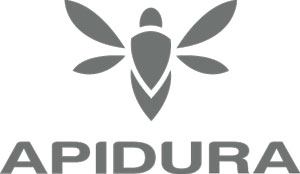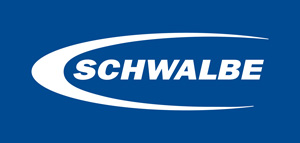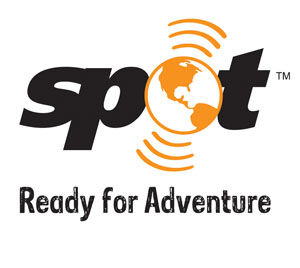
Thoughts on 9 November
When I entered the small toy shop in Duderstadt I couldn’t hide my excitement. A wee boy, stepping into a different world. My experience of toy shops in East Germany was totally turned on its head at the very moment I walked into the shop. It was the 10th November, a Friday morning, not long until Christmas. It was the morning after the Berlin Wall and the German Border were opened for the first time on the 9th November 1989. In the toy shop in Heiligenstadt, the small East German town close to the border where I grew up, the shelves would be almost empty by now. As Christmas was fast approaching, the very few things on sale would be snapped up even quicker. We had big shops and very little choice on the shelves.
Things were different here. I was in a small shop and the shelves were bursting out of their seams with toys. It smelled different here than in toy shops 30 kilometres away over the border. My eyes were fixed on a police car. Not a proper one, but a SIKU miniature of a Mercedes Benz 190D. Painted in green and white, with a small blue light and plastic antenna on the top. Nicely packed, made with great attention to detail. Made in West Germany. This is the first thing I bought with the 100 Deutsche Mark we had been given as a welcome gift when entering the west of the country, for the first time.
For many years afterwards this small car would serve as a reminder. As the materialised memory of the day in November that changed my life.
We were sitting in front of the television the night beforehand. Things had been tense enough that even I, at the age of 10, knew that things would change. The Monday before we were walking down the main street in the small 15,000 people town where I grew up. Heiligenstadt had always been a special place, less East German than anywhere else I remember. With a largely catholic population the church was still a powerful force here, even after years of communist oppression. It was a region ripped apart by the border, parts in West Germany, parts in East Germany. A region where families were divided overnight and bridges destroyed. Where the border ran through the middle of a river. In very few places in the German countryside other than Berlin the division of a nation was so obvious.
It came as no surprise that the Monday prayers and demonstrations, which had sprung up all across the country for months now, were well attended here. Dad and I were holding candles as we peacefully marched down the streets. My dad knew pretty much everyone in town. It’s my networking skills that I have from him. For his whole life he fixed other people’s televisions. While he would be out of a job now, back in those days it was one of the most important jobs in town. Growing up so close to the border, illegally watching television programmes from West Germany, was one of the only ways to stay informed. Officially no one watched ARD and ZDF, the two main West German channels, but behind closed doors we would not only get the news from the other side of the country, but also a good amount of entertainment.
This evening things were different though. We were tuned into East German television, broadcasting live. For the last few months change was in the air. Copies of the Sputnik Magazine had surfaced at home. Intended to be the Soviet equivalent to Reader’s Digest, but censored by the Soviet government, the magazine took a more independent tone during Glasnost. Next to the illegal consumption of news programmes from the west, it was another source of information in changing times. Sat in front of the television in our apartment flat we were watching with anticipation when Günter Schabowski offhandedly said East Germany was lifting restrictions on travel across its border with West Germany. “As far as I know, this enters into force . . . this is immediately, without delay.” Shortly afterwards I went to bed, and while I was dreaming, the checkpoints on the Berlin Wall were opened. For good.
It was the next day when my parents whisked me into our small Trabant 601s very early in the morning. “We are going!” “Now?” I asked. I was confused. There wasn’t much time to think. I had just peeled myself out of bed. I would normally share the room with my sister, but she had been off to become a teacher. We lived in a 3-bedroom apartment, a ‘Plattenbau’ as they’d infamously be called. As the oldest my brother had his own room. Ever since I entered this world, I would first share a room with my parents, then my sister. My parents were desperately searching for a house, but there simply wasn’t anything available. Building wasn’t an option either, as everything was scarce in the East. We cued for a bunch of bananas a few times a year, the three of us, for hours. The same happened for oranges for Christmas.
My brother was in the army, serving his compulsory military service. I was the only one left at home. My parents were worried about my brother, as it still wasn’t clear what exactly would happen. I can still vividly remember this morning, even 30 years later. I stood there in the corridor, grabbing my small elephant, a soft toy which had been with me all the time. I was squeezing him against my chest. There was a sense of urgency in the air. My parents were in a hurry. Breakfast was rushed, and very soon I found myself on the back seat of the car. Instead of going to school we were off on our way to Duderstadt, to a new, unknown world. School could wait until next week.
It’s July, almost 27 years later. I stop at the big brown tourist sign that marks the place where the former border used to run. If it wouldn’t be here, nothing would remind people that they just crossed the line of an iron fence that not only divided Germany, but also Europe, for many years. I have just crossed the Iron Curtain. Not the arrival on Portobello Beach in Edinburgh about a month later, but this was the most significant moment on the journey, which has taken me more than 34,000km around the world on a singlespeed bike. I lean my bike on the sign. Not sure what to think, as a few times before on this trip, I stare blankly across the rolling hills.
I remember the emptiness. It’s the same as when I stood next to the interstate in New Mexico. It was the 10th November 2015 when I last spoke to my dad on the phone. Only days later he got airlifted into hospital and died. Looking at the rolling hills I understand the significance of that day in November. It connects me to my dad. It opened a world of opportunities. I wish he could have still witnessed that moment. A cold shiver runs down my spine, and tears run down my cheeks. Then I smile.
If it wasn’t for the events on the 9th November 1989, I wouldn’t stand here. I wouldn’t be walking the streets of Edinburgh in 2019 listening to Silly’s ‘Verlorene Kinder’ (Lost Children) on repeat, a song that got banned when published in 1989, as it was super critical of the regime. I don’t know which turn my life would have taken, but it would have been a very different one. I will always remember the night of the 9th November as a night of opportunities. It was the night that I was given the freedom I enjoy, after many people fought hard but peaceful for it.
I held on to the freedom as much as I held on to my little elephant soft toy on that morning I got whisked into my parents’ car in 1989. It would influence my decisions more than anything else. It would make me scared and agitated when someone wanted to take my freedom away, trying to micromanage me in a personal or working environment. I would always be reminded of the fragility of that freedom, and how hard people in East Germany had to fight for it, and walk away. Better sooner than later.
It’s the night of the 9th November 2019. 30 years later I sit in my office in Scotland and finish my thoughts. I enjoy writing this. I try to connect the dots as good as I can. It’s interesting to think that the very thing that reminds me of those events in November is a small police car. A material ‘thing’.
Apart from the little police car, thankfully material things have never played a huge role in my life since. While I won’t deny that I own a few things, eight bikes amongst them, there is nothing I couldn’t do without. I was brought up with little choice. I don’t like owning things, it’s a necessary evil. Which is possibly the reason why I still haven’t warmed up with the idea of burdening me with a mortgage and buying a house.
It’s that very freedom I gained on the night of the 9th November 1989 that made me the person I am. The freedom I enjoy so much on my adventures. The freedom that I enjoy so much when riding my bike. The freedom that gives me the ability to inspire others. It’s the night of the 9th November that will always make me thankful for the many opportunities I have been given by peaceful change. And hopefully that will never change.







Ive been wrecking my mind on which way to vote? I was leaning towards the Torys but after reading ur superb article, I realized what a mistake that would be.
[…] event in history will stay in my memories forever. The fall of the Berlin Wall on November 9, 1989. I was born in East Germany, not too far from a deadly border that divided families and friends […]
[…] un evento en la historia permanecerá en mi memoria para siempre. La caída del Muro de Berlín en 9 de noviembre de 1989. Nací en Alemania Oriental, no muy lejos de una frontera mortal que dividió a familias y amigos […]